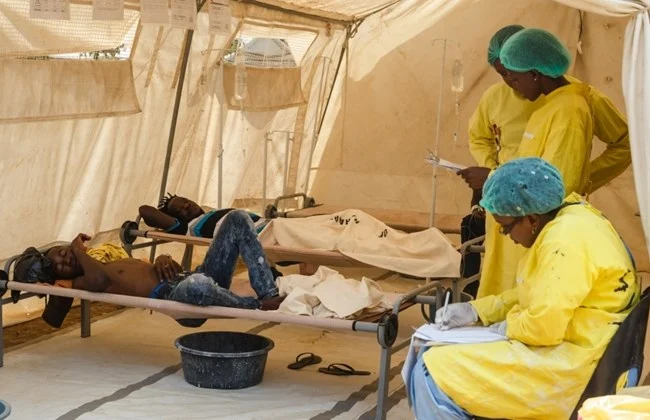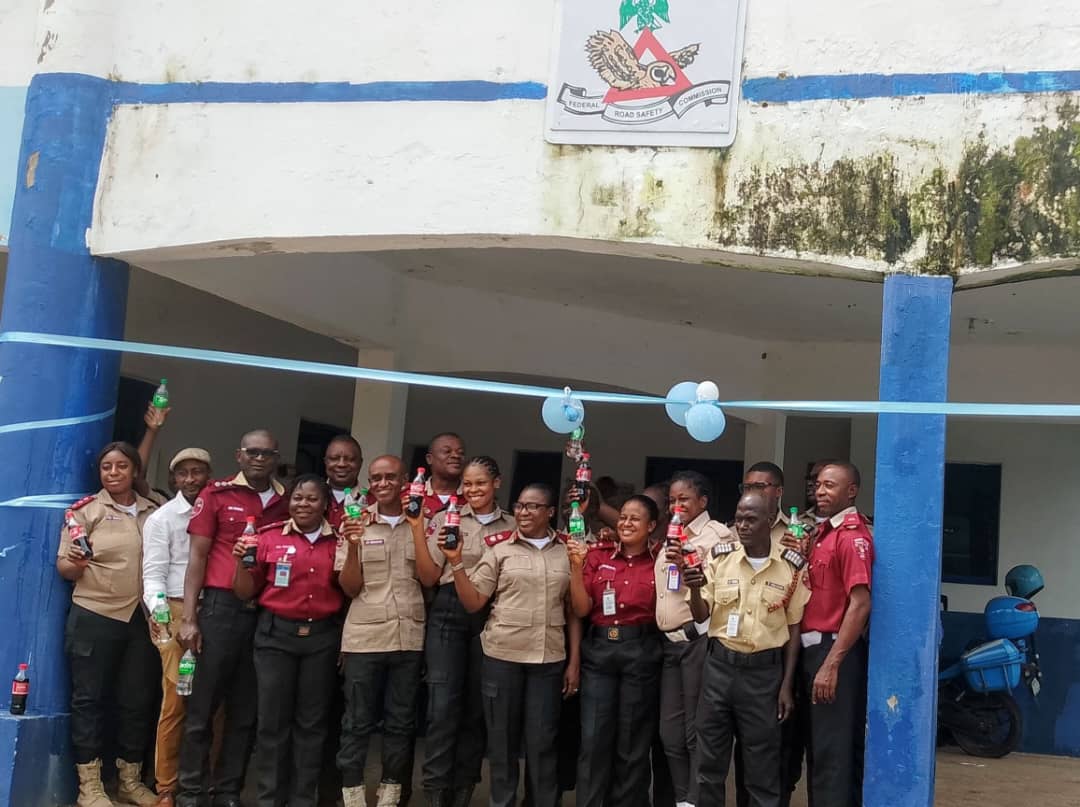Cholera Outbreak: Federal Government Urges State Authorities to Intensify Awareness Campaigns, Surveillance in Food Establishments

By Fatima Saka
The federal government of Nigeria urgently appeals to state authorities to enhance awareness campaigns regarding the cholera outbreak, with a specific focus on establishments where food and beverages are served, such as markets, garages, schools, restaurants, stadiums, and religious and sporting events.
The federal government encourages sub-national administrations to bolster environmental health surveillance in eating establishments, including “mama put” joints, cafeterias, restaurants, and mobile food vendors.

Dr. Iziaq Adekunle Salako, the Honourable Minister for State, Federal Ministry of Environment, emphasized the significance of sustainable human-environment interaction in cholera prevention and control in a press release on Sunday.
The minister underscored the ministry’s deep concern over the cholera outbreak in certain Nigerian states, which has tragically resulted in numerous fatalities and affected several communities.
According to a recent report from the Nigeria Centre for Disease Control (NCDC), there have been 1159 suspected cases, 65 confirmed cases, and 30 deaths across 30 states. The states most affected, contributing to 90% of the total cases, include Bayelsa, Lagos, Zamfara, Abia, Bauchi, Cross River, Ebonyi, Delta, and Katsina.
Given this situation, the Federal Ministry of Environment has been actively engaged in activities, conducted by the Department of Pollution Control and Environmental Health and the Environmental Health Officers Registration Council of Nigeria, aimed at halting further transmission of the disease. These activities include water and food testing to identify infection sources, environmental sanitation campaigns, and household water chlorination.
Efforts are also underway to provide support to the worst-affected states with chlorine solution/tablets, water and food testing resources, Information, Education, and Communication (IEC) materials, and technical guidance.
The Federal Ministry of Environment is issuing this press statement to raise awareness among the public about cholera prevention and control measures, in order to prevent further spread and enhance collaboration with health authorities and other stakeholders, in line with the one health approach of the Nigerian federal government.
Cholera, a disease primarily driven by poor sanitation and hygiene, is an acute diarrheal infection caused by consuming contaminated food or water containing the Vibrio cholerae bacterium. It poses a global public health threat, affecting individuals of all ages, and can be fatal if left untreated. The disease is highly contagious, with symptoms typically manifesting between 12 hours and 5 days after exposure.
Early symptoms include frequent milky white watery stool, nausea, and vomiting. Cholera outbreaks are seasonal in Nigeria, occurring mainly during the rainy season and particularly in areas with inadequate sanitation and hygiene practices. Extreme climate events like flooding also contribute significantly to the disease outbreak.
The World Health Organization (WHO) has reported a global resurgence of cholera cases, categorizing the current outbreak as a “grade 3 public health emergency” that necessitates a comprehensive WHO response system. Nigeria is one of the 14 African countries experiencing this resurgence.
To prevent the spread of cholera, the ministry urges all Nigerians to be vigilant, adopt good sanitation and hygiene practices at home and in their workplaces, and take preventive measures, such as:
– Maintaining cleanliness in their surroundings and disposing of waste at designated locations.
– Using clean and safe water, with water from suspicious sources boiled or treated with chlorine solution.
– Exercising caution with locally prepared drinks unless they are prepared under hygienic conditions.
– Washing hands regularly with soap and water, especially after using the toilet, cleaning a child who has used the toilet, preparing food, eating, and interacting with animals.
– Avoiding open defecation and using clean and safe toilets.
– Cooking food thoroughly, keeping it covered, and consuming it while hot. Eating in public areas, including at gatherings, should be done with caution.
– Washing fruits and vegetables with clean and safe water before consumption.
Individuals experiencing any cholera symptoms are advised to seek immediate medical attention.
The ministry calls on all Commissioners of Environment and Local Government Chairpersons to support Environmental Health Officers nationwide in intensifying sanitation and hygiene efforts through enhanced community-led total sanitation to halt further transmission and spread of the disease.
The Federal Ministry of Environment is committed to ensuring a clean and healthy environment for all Nigerians, as this is crucial in preventing and curtailing cholera outbreaks and other sanitation-related diseases.
Cholera is preventable, and prevention is more effective and cost-efficient than treatment. Nigerians are urged to take preventive measures seriously and maintain cleanliness in their environment.
The ministry expresses its condolences to families who have lost loved ones and stands in solidarity with all those affected by the outbreak.





